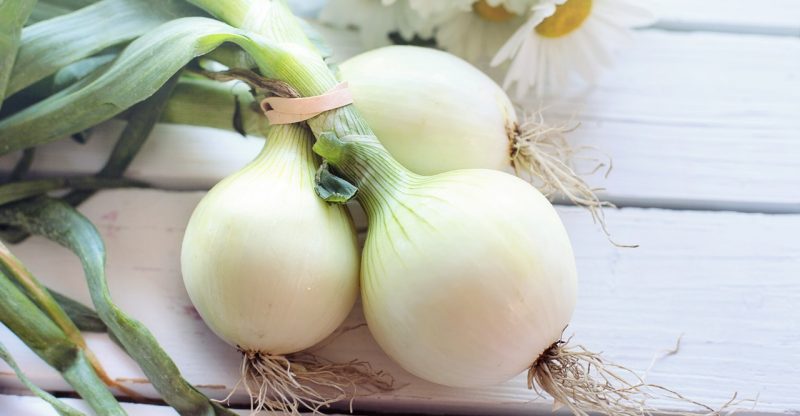Can I Use Onion Juice Daily
Can I Use Onion Juice Daily?
If you’re seeking to enhance the condition of your hair or scalp, or just aiming to eliminate your shampoo’s odor, you may be pondering if it’s safe to apply onion juice on a daily basis. The suitability of daily use depends on your specific requirements and how sensitive your skin is. Continue reading to discover the advantages and potential downsides of employing this natural remedy. Additionally, you’ll find guidance on how to properly use onion juice on your skin. Utilizing onion juice can offer numerous benefits for your skin, yet it’s not without a small degree of risk.
Health benefits
Whether you drink it on a regular basis or don’t, onion juice has many health benefits. It is a great source of folate, which prevents the buildup of homocysteine in the blood, a substance that interferes with the production of serotonin and dopamine. Folate also supports the production of other essential hormones, including serotonin. The antidepressant effect of onion juice is another one of its benefits.
Apart from its beneficial properties, onion juice is also excellent for the skin, hair, and immunity. There are some precautions, however, and some people may be sensitive to it. It may also cause rashes on the scalp and hands. In addition, it may cause skin irritation and vomiting. Those with sensitive skin should consult a doctor before drinking this juice. Lastly, it is not recommended to drink large amounts of onion juice on a regular basis, since too much consumption could cause an allergic reaction.
Onion juice is beneficial for the heart as it contains quercetin, an antioxidant that improves the heart’s function. Quercetin also inhibits the buildup of cholesterol and fatty substances in the blood vessels, which may lead to atherosclerosis and high blood pressure. A meta-analysis of studies on fresh onion juice found that it significantly improved the function of liver enzymes. However, further studies are necessary to determine the exact health benefits of onions.
In addition to its anti-inflammatory and antioxidant properties, onions are a great source of various nutrients. They are rich in fibre, iron, folate, potassium, magnesium, and phosphorous, as well as a variety of vitamins and minerals. They also help lower blood sugar levels. Regular consumption of onion juice can help with coughs, colds, and fever. Onions also help in the treatment of acne and bronchial spasms.
Side effects
There are few side effects associated with using onion juice for hair. This natural conditioner is packed with sulfur, vitamin A and antioxidants. Onion juice is also an effective treatment for alopecia areata, and can even regrow hair. Onion juice is highly beneficial for hair, and can be applied topically to the scalp to promote healthy hair growth. Its sulfur content helps control blood pressure and remineralize bones. Onion juice is also great for skin, as it reduces acne and blemishes.
Onion juice may have a number of unintended side effects. It may increase the risk of heartburn and cause a burning sensation if used in large quantities. It may also cause rashes on the hands and scalp. Another side effect of onion juice is indigestion. The juice is highly aqueous, which means that it contains a large amount of water. In addition, drinking large amounts of onion juice may cause belching and upset stomach. One ingredient in onions may have antioxidant properties, but its safety has not been established. Nevertheless, up to 35 mg of Diphenylamine a day is safe for humans.
The use of onion juice for hair depends on the type of hair you have and the skin sensitivity. Generally, twice a week is a good number. If you have a severe reaction to onion juice, however, you should consult a doctor. In addition, you can apply coconut oil on your hair after onion juice application to avoid drying it out. Coconut oil can protect the scalp and replace lost natural oils and nutrients. It is best to wash your hair after onion juice treatment to avoid any side effects.
Application to hair
Applying onion juice to the scalp and hair can give the desired results. This natural remedy can be effective for reducing dandruff and promoting hair growth. However, it must be avoided in case of sensitive scalps. Moreover, the juice of an onion may irritate sensitive eyes and can cause irritation. In such cases, it is recommended to wash the hair with a mild shampoo. If you are not bothered by the sting, you can leave the juice overnight.
For best results, you can combine one cup of onion juice with two tablespoons of coconut or sesame oil. Then, use a cotton pad to apply the mixture on your scalp. Allow it to remain on the scalp for about 30 minutes, then wash it off with a mild shampoo. The treatment works best if the lemons are young and tender. But, it may not be for everyone. So, it’s best to consult your doctor before implementing this treatment.
An onion juice and honey hair mask can also be used as a natural remedy. They are rich in vitamins C and selenium, and their anti-inflammatory properties can benefit the scalp and hair. They help prevent hair fall, add lustre, and enhance the growth of new hair. You can use this remedy once or twice a week for healthy and shiny locks. Just apply the mixture on your scalp and hair, and then wash it off with a mild sulphate-free shampoo.
Onion juice can cause a pungent odor, so if you’re concerned about the smell, you can dilute the juice with a few other ingredients to minimize its effects. Try mixing it with essential oils, like rosemary or lavender, to minimize the odor. You can also mix it with honey to make it more palatable for those with sensitive skin. This method can also be used in conjunction with other products like coconut oil or aloe vera.
Application to skin
Whether you’re looking to fight dry skin or wrinkles, applying onion juice to your face can be a great solution. Onions have a number of benefits to your skin, from improving your complexion to fighting bacteria and reducing the appearance of acne. They’re also packed with vitamins, including vitamin C, which fights free radical damage. Applying onion juice to your face can delay the signs of ageing and protect your skin from the damaging effects of free radicals.
Onion has many benefits to the skin, and some people may find it helpful in treating a variety of gastrointestinal disorders. Onion juice is particularly effective at helping with stretch marks, and some moisturizers and gels contain onion extract as an ingredient. Moreover, trendsetting Korean beauty brands are now releasing products that contain onion extract. For your information, the Environmental Working Group has found no evidence of allergic reactions to onion juice when applied topically.
Onions contain antioxidants and help detoxify the body, removing toxins from the blood and skin. Onions contain quercetin, one of nature’s most potent antioxidants. Using onion juice on your face regularly can help fight acne and reduce scarring. Onion juice has antibacterial and antiseptic properties and can help heal and prevent the formation of new acne. As a result, onion juice helps to clear your skin of acne scars and other skin conditions.
Using onion juice as a face mask is another option for anti-acne skin care. You can combine onion juice with olive oil and apply it to your face and let it sit for about 20 minutes before you rinse off. If you want to try another method, you can also combine onion juice with almond oil. Applying this mixture on your face will help to fight bacteria and other harmful toxins that can cause pimples.
Recipes
There are many recipes that can benefit from the use of onion juice. Onion juice has been used to treat a variety of ailments. While some may have allergic reactions to the taste, others may have a skin reaction to it. The juice from onions can be used in savory dishes, and some people have even used it as a substitute for sugar in fruit smoothies and mint tea. Some people use it to make their favorite dishes more flavorful, while others incorporate it into their regular diet as a supplement.
When making onion juice, make sure to use a strainer that can trap solid pulp. You can also use a cheesecloth to filter the juice. To make the strainer more effective, place the pulp in the center of the cloth, then push down and squeeze. Repeat until no juice is dripping. It will take several rounds of this process to get the desired consistency. Depending on the amount of onion pulp in the juice, you may need to use a larger strainer.
Onion juice contains selenium, which can boost your immune system. Onion juice may also prevent cataracts. A study in rats found that onion juice prevented cataract formation when it was applied to their eyes. Additionally, onion juice contains antifungal properties that can fight the common fungal infection Candida albicans. In an attempt to fight fungal infections, onion juice can be applied to the toenail with a cotton ball. Once it dries, simply wash it off with lukewarm water. It is also useful as a remedy for an ear infection or earache.
Onions have therapeutic benefits that date back to ancient times. They were used as a vegetable for many ailments including headaches, heart disease, and mouth sores. They contain sulphur compounds that lower blood cholesterol and prevent clots. Additionally, they are high in potassium and vitamin C, making them a good choice as a snack or meal replacement. In addition to its beneficial effects, onion juice is a healthy and tasty food source, low in calories, and high in nutrients.








